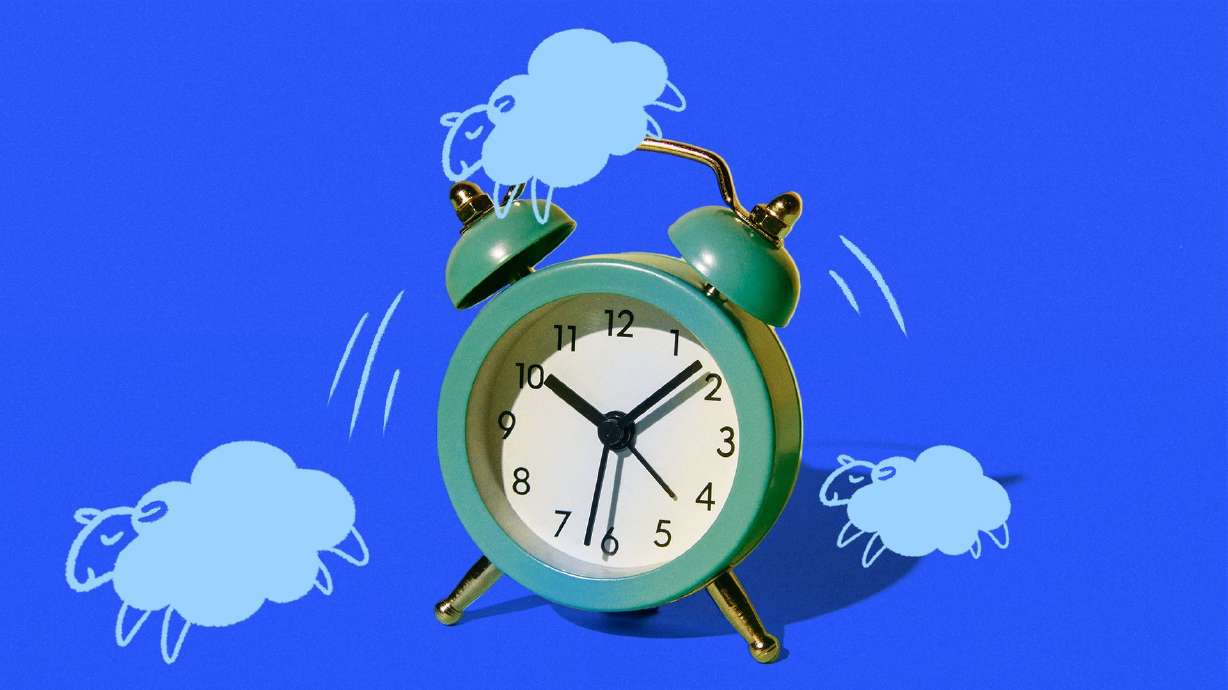Estimated read time: 3-4 minutes
This archived news story is available only for your personal, non-commercial use. Information in the story may be outdated or superseded by additional information. Reading or replaying the story in its archived form does not constitute a republication of the story.
- Phones disrupt sleep and encourage procrastination, making them poor alarm clocks.
- Experts suggest using traditional alarm clocks to improve sleep quality and morning routines.
- Removing phones from bedrooms reduces distractions, enhancing sleep and overall well-being.
ATLANTA — Phones have replaced many things: computers, calculators, cameras and maps.
But returning to an old-fashioned alarm clock instead of your phone might help you get up and go in the morning.
"Keeping the phone in another room will likely decrease the opportunity for distraction from sleep, and also decrease opportunity for sleep procrastination," said Dr. Shalini Paruthi, sleep medicine attending physician at John J. Cochran Veterans Hospital in St. Louis and adjunct professor at St. Louis University School of Medicine.
A phone by your bed could mean easy access to scroll at night and an easy snooze button in the morning.
If you're planning to sleep better or wake up earlier to implement new routines in the new year, a small and helpful step may be trading your phone for an alarm clock.
Stop the morning snoozing
The best-case scenario is that you wouldn't need to hit snooze.
"Ideally, a person has gotten enough sleep that by the time the alarm rings, they are well rested and actually ready to get up," Paruthi said.
Hitting the snooze button once might help you psychologically by allowing you to ease into waking up, she added. But more than once isn't recommended because you aren't getting good sleep with the extra minutes.
At the end of a night of sleep, people usually go in and out of a cycle called rapid eye movement sleep, said Dr. Brandon Peters-Mathews, a neurologist and sleep medicine physician with Virginia Mason Franciscan Health in Seattle. This stage is important for memory processing and creative sleeping, and fragmenting that sleep could affect brain function.
Instead of setting an alarm for earlier than you need and hitting snooze, he recommends allowing deep, uninterrupted sleep until you absolutely must wake up.
"When you didn't get enough sleep or didn't get good quality sleep, the likelihood that an extra five to 10 minutes of sleep could make a meaningful impact is pretty low," Dr. Joseph Dzierzewski, senior vice president of research and scientific affairs at the National Sleep Foundation, said via email. "When we wake in the morning and aren't feeling refreshed, it is best to get up, start the day, and be intentional about taking steps that can set us up for success in the coming night."
With a phone alarm on your bedside table, it is easy to reach over and hit the snooze button. But dedicated alarm clocks have many ways to get you up and out of bed.
"Alarms come with a variety of features such as vibration, lights, noises, puzzles," Paruthi said.
Your phone disrupts your sleep
Another benefit of not using your phone as an alarm is that you have an easier time removing it from your bedroom, which is helpful for sleep, Paruthi said.
"Ideally, a bedtime routine includes winding down, relaxing, and helping the brain transition from a 'go-go-go' state to a more calm, ready to fall asleep state," she said. "Having a phone at the bedside makes it really easy to roll over and start scrolling."
The bright light and content on your phone might make you more alert instead of drowsy, and screens can also lead to procrastinating about sleep and getting less than you originally intended, Paruthi said.
And having your phone close by makes it more likely that you will use it, Dzierzewski said.
"Having a phone in close proximity could increase feelings of curiosity. … What might be happening that you aren't seeing?" he said. "These feelings could be enough to entice you to roll over and check your phone, thus interfering with going to sleep, staying asleep or sleeping soundly."
If you aim to sleep for eight hours but then reach for your phone to scroll, two hours can fly by quickly, leaving you without the necessary amount of sleep.
"If my phone is in another room, I am less likely to get out from under my warm covers, and thus sleep those two hours between 10 and midnight, i.e., getting the eight hours my brain and body thrive on," Paruthi said.









